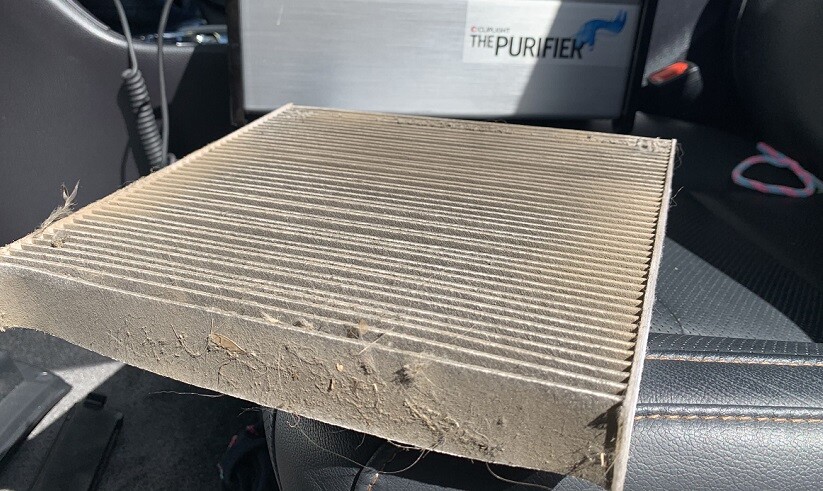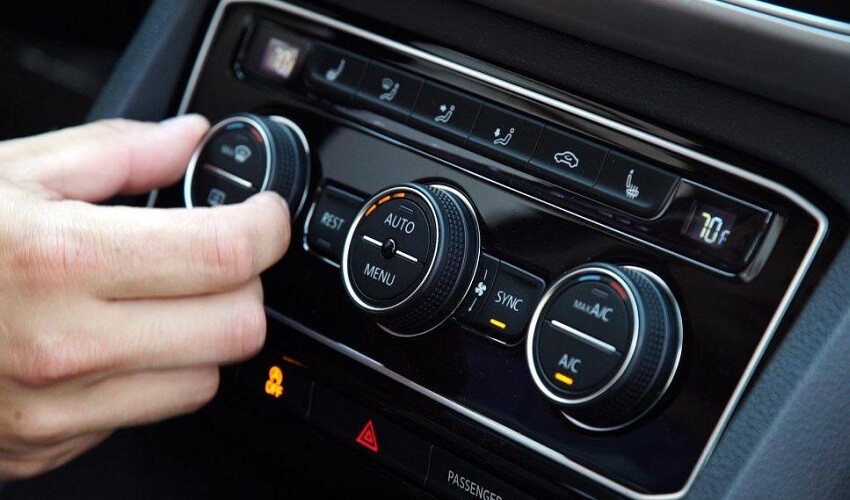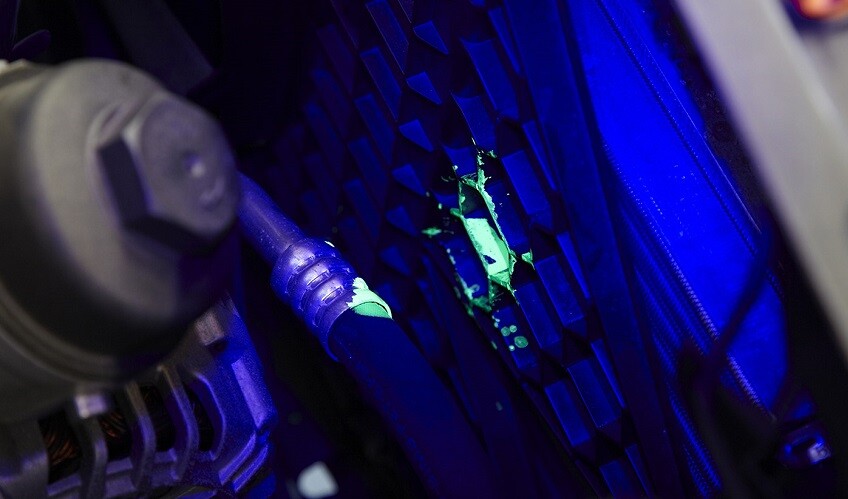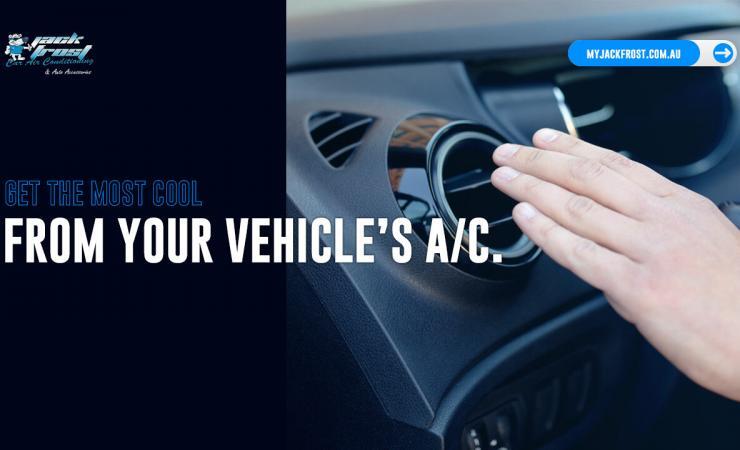Car Air Conditioning Troubleshooting Guide
Given Australia’s climate, your car air conditioning system plays an important role when it comes to being comfortable on both long and short car journeys. What we seem to forget is we rely heavily on our a/c systems to keep us fresh and cool during the Spring and Summer periods and warm during Winter.
The air conditioning system in your car is a complex system and on occasion, you may face issues with it not working properly, but the good news is that many of these issues have simple solutions and with the help of an expert can have your air conditioning back up in running in no time.
Table of Contents
Common Problems With Car Air Conditioning
Here we look at a number of common issues that may arise with your air conditioning system and explain what may be the likely cause of any problem.

Why Does My Aircon Smell Bad?
If you’re greeted with a less-than-fresh smell when you switch on your vehicle’s air conditioning systems, this is a good sign that your car AC is not working at its peak performance and that horrible whiff can be caused by a variety of problems.
- Damp Smell
The distinctive smell of mildew flooding out of your air vents is usually caused by a build-up of bacteria and mould. This can happen to older cars that have had bacteria growing behind the dashboard for years and in cars that rarely run the air conditioning, as they don’t enjoy the drying effects that it provides to excess water on the coils. - Pungent Odours
A generally bad smell can be emitted when the air filters get clogged up with dirt, dust and stagnant water and this odour can be repulsive enough to make drivers switch off their auto air conditioning, rather than suffer through the smell. - Chemical / Sweet Smell
When a chemically, sweet smell is given off when you turn on your air conditioning, it is likely that there is a leak somewhere within the system, most likely in the hose, pipe or heater core, the radiator or the housing unit for the coolant. - A Smell of Gas
A gas leak can be detected in your auto air conditioning unit when a smell of gas is emitted when you turn on the system. The waft of gas often appears when the system is first turned on and the fresh air is sucked into the vents, pushing out the gas that has built up inside the unit.
All of these smells can indicate that your car AC is not working and that there is a problem within your air conditioning unit, from dirty air filters that need to be changed to leaks that need to be repaired and vents that need to be cleaned.

Why does my air conditioning have weak air flow?
A weak airflow may be caused by a number of issues ranging from a minor issue such as a loose hose to the fan in the evaporator being broken. Other potential causes may be a build-up of mould or mildew in the evaporator that clogs the vents, or a broken seal somewhere within the system.
- Mould and mildew growth
The presence of moisture inside air conditioner units can be the ideal environment for mould and mildew to thrive. This can reduce airflow by blocking the fins at your heat exchangers behind the dashboard as well as producing unpleasant odours in the cabin and putting the health of your passengers at risk. - Loose hose or seal
Another common cause of weak airflow is that the blower hose has come loose, meaning that air is not passing through the evaporator into the cabin. There could also be a problem with one of the multiple seals in the system, which need to remain tightly closed to ensure air is able to pass through. Hoses and seals should only ever be repaired or replaced by a professional technician. - Blocked cabin filters
The cabin filter also called a pollen filter, is typically located before your blower motor and acts a filtration system between the outside air and the cabin of your car. Any pollens, dirt and leaves or just general road debris get stopped at the cabin filter to ensure your passengers are only breathing clean air. Cabin filters do not last forever and should be changed every 20,000 km. - Faulty fan
The ventilation fan is responsible for blowing air over the evaporator unit, which is cooled by the refrigerant before entering the cabin. If the airflow is weak or non-existent, the fan may be damaged and will need to be replaced for normal operation to resume.

Why is my air conditioning no longer cold?
Again there are a number of potential reasons why your air conditioning is not as cold as it used to be. Causes can range from a loose hose or a broken seal somewhere within the system, to potentially more serious issues such as the condenser or the evaporator not working to full capacity or the motor in the compressor burnt out.
- A/C Leaking Refrigerant
A refrigerant leak can occur at any point in the air conditioning process and so it’s sometimes difficult to pinpoint the exact location of the leak. The most common places where leaks are found are at A/C unit hose connections. - Condenser is Blocked
The condenser of your vehicle’s air conditioning unit is supposed to re-cool hot refrigerant once it has been compressed. This is done using the airflow that comes through the front of your car as you drive. If the condenser is blocked by some type of debris from the road, then it will be unable to properly cool the refrigerant and your car’s system will continue to operate with overheated refrigerant. This will quickly cause the A/C unit to only expel hot air. - Condenser is Broken
If there doesn’t appear to be anything blocking the condenser, it’s possible that it may be broken altogether. A broken condenser can be caused by a puncture from road debris going through the grill of your car and damaging the part, or equipment failure. - Electrical Issues
Electrical issues are perhaps the most difficult problem to diagnose when it comes to an A/C unit that has stopped working. First, a visual inspection of all the wiring should be done to see if any wires are broken or frayed. - Faulty Cooling Fans
When fans aren’t properly functioning, your condenser may not receive proper cooling. Over time, this can cause your car to start emitting only hot air. The best way to check if the cooling fan is broken is through a visual inspection. Cracks in the fan can be caused by debris on the road and replacement is the only true way to address this issue. Other common issues with cooling fans include blown fuses and other electrical issues. - Compressor Has Gone Bad
The compressor keeps your A/C moving at all times. Without it, the refrigerant cannot circulate through the system and you’ll never get any cold air. The most common reason that a compressor goes bad is due to long periods of time without use. We recommend running your A/C system on full blast for at least 15 minutes roughly once every three weeks or so, regardless of the outside temperature. This will help keep the compressor fresh and extend its overall lifespan.

Why does my air conditioning start cool but then go warm?
One cause for this could be a problem with the clutch in the compressor, leading to the compressor failing to maintain the correct pressure which results in hot air flowing through the system.
A clogged expansion valve may also be the cause, resulting in a reduced flow of refrigerant into the evaporator. A more serious cause may be that there is a leak within the air conditioning system.
- A leak in the A/C System
A small refrigerant leak is the most common reason a car’s A/C gradually loses its cool. A leak is typically caused by a mixture of moisture and refrigerant that, when combined, creates a corrosive acid that eats away at seals, valves, and hoses in the A/C system. - Faulty Compressor Clutch
When there’s a problem with the compressor clutch, your air conditioner won’t blow cool air for long. A damaged, failing, or worn compressor can’t properly regulate the flow of refrigerant in the A/C system to deliver the cool air you crave. - Failing Expansion Valve
If your A/C flip-flops from hot to cold and back again, your expansion valve could be failing. The expansion valve distributes the proper amount of refrigerant to your evaporator. If the valve is blocked, the refrigerant flow could be restricted or could be too unrestricted. - Blown Fuse or Electrical Issue
Your car’s A/C system is made up of a jungle of wires, switches, relays, and fuses. If just one of these parts fails, your A/C will shut down and start blowing warm air.
A leak is normally the result of moisture entering the system which, when mixed with refrigerant, causes a corrosive acid that causes damage to components of the system.

What causes a leak in the air conditioning system?
If your car air conditioning system has a leak, the main causes tend to be moisture and old age. When moisture mixes with refrigerant it produces a corrosive acid that can damage the entire air- conditioning system.
Moisture may enter the system through old rubber seals and hoses which over time begin to lose their elasticity. If you do suffer a problem with the air conditioning system in your car, it is not always a quick fix which many assume. If your car air conditioning has a leak, a re-gas is not the solution, and you need to consult your local car air conditioning technician to get a proper diagnosis and quote for repairs.
- Natural Wear-and-Tear
Like most components, some parts may become worn out over time. A broken gasket or seal, cracked hose or other components may cause a refrigerant leak in the system. Additionally, some refrigerant does naturally escape over time, but it escapes in such tiny amounts it would take a very long time to cause the vehicle to blow warm air. - Moisture
If a rubber hose, seal or other component breaks down for any reason, it allows moisture to enter the system. The moisture mixes with the refrigerant and forms an acid which breaks down other components and causes tiny pinhole leaks. - Road Salt & Brine
Unlike a home air conditioner or a refrigerator, a car’s air conditioning system is not encapsulated in one unit. The parts in your vehicle’s A/C system are scattered throughout the vehicle to make it work properly. This means some parts are exposed to road salt and brine used during the winter months which can ultimately lead to the corrosion of those parts. - Damage from Road Debris or Accidents
Some under-car damage can be caused by stones, rocks, potholes or other road hazards. Furthermore, if the vehicle has suffered an impact from an accident, some components may have been damaged.
How can I test if my air conditioning system has a leak?
The right leak testing equipment needs to be used to properly and thoroughly test for leaks. This is best undertaken by a professional.
We recommended having your car air conditioning system checked yearly by a professional to ensure that it remains trouble-free and works to its full potential.
If you encounter any problems with your car air conditioning, you have it checked out as soon as possible by a qualified car A/C technician.
What does it cost to fix the car air conditioning?
The price for repairing your vehicle’s air conditioning will depend on the problem. If your A/C simply needs a 24 point performance check & regas, then you’re looking at anywhere between $150-$250 depending on the season and whether it’s a mobile or workshop service.
If the initial diagnosis reveals there is a greater problem with your air conditioning such as leaks, broken compressors, condensers, evaporators, control valves or any other outlying problem, then you will be quoted accordingly for replacements & repairs. After the repairs are carried out, then the car air conditioning technician will re-gas your system.
It’s important to note: That it’s illegal for a qualified technician to re-gas your a/c system if there is a leak or a problem with one of the components that make up your air conditioning.
If you experience any problems with your vehicle’s air conditioning system give your local car air conditioning specialists a call.
If you’re located in Brisbane or North Gold Coast contact Jack Frost on (07) 3180 3500 or visit our workshop located at 4/429 Creek Rd, Mount Gravatt East





My friend told me that his Toyota is spewing out warm instead of cold air when you turn on its air conditioning. What you said about how there could be a leak on the car’s A/C system is a surprise to me. I’ll share this with him and suggest that he get it serviced by a car air conditioning expert before it gets worse.